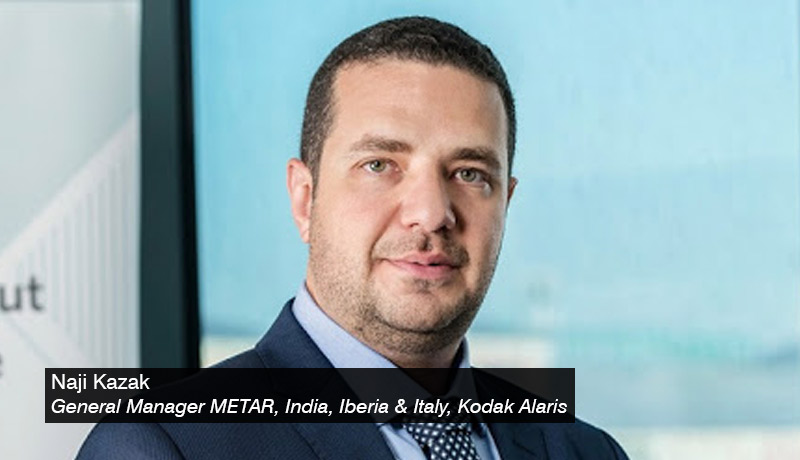
For the July 2021 Special Feature on ‘Bridging The Gap Between Technology And Business,’ Rabab Zehra, Executive Editor of TECHx Media interviewed Naji Kazak General Manager – METAR, India, Iberia & Italy, Kodak Alaris to discover more about the role Kodak Alaris plays in the ongoing wave of digital transformation, the company’s recent initiatives to a sustainable future, EPEAT Gold award & upcoming industry trends.
TECHx: Please outline some of your recent initiatives that reinforce Kodak Alaris’ commitment to a sustainable future.
Naji: As part of its ongoing commitment to be environmentally responsible, Kodak Alaris has added twelve document scanners to the Electronic Product Environmental Assessment Tool (EPEAT), the definitive global registry for greener electronics. EPEAT has verified that the Kodak S2085f Scanner and Kodak S3000, S2000 and E1000 Series Scanners meet ENERGY STAR guidelines for energy efficiency and the reduction of hazardous substances and waste products, earning the EPEAT Gold ecolabel, which is the highest level of certification possible.
TECHx: Could you please tell us more about the EPEAT Gold award you received recently? What distinguishes you from the competitors?
Naji: Kodak Alaris has more Gold-registered scanners than any other manufacturer. All of our scanners are rated at least Silver and exceed EPEAT’s requirements for environmental performance, and now twelve of our scanners are rated Gold. This achievement is a clear demonstration of Kodak Alaris’ commitment to a sustainable future, and to providing customers with high-quality, environmentally-friendly products.
TECHx: The landscape of work has evolved considerably in the last year, with remote working becoming a feasible long-term option. What part does Kodak Alaris play in this transformation, particularly in terms of bridging the gap between businesses and technology?
Naji: Digital transformation (DX) continues to dominate discussions on IT spending as businesses look for ways to gain a competitive edge. As a new DX economy emerges, disruptive new technologies and processes will transform businesses of all sizes and across all industries.
Moving business-critical data between home-based workers and back-end systems for processing can be a challenge, especially when workers are remote. When this data is trapped on paper then this issue is significantly amplified. Kodak Alaris keeps you productive with access to the information that is vital to day-to-day processes and decisions — from anywhere the work is done.
TECHx: By 2026, the Middle East and Africa 3D 4D Market is predicted to grow at a rate of 21.5 percent. In light of this, what do you think the most important technological advancements in the printers and scanners industry will be in the next years?
Naji: There’s no doubt the coming decade will bring many exciting technological advances such as AI & ML, IoT, Big Data & Analytics, Cloud & Edge computing, Natural Language processing, etc. Also the 3D and 4D printing and scanning although this may seem low-tech compared to some of the other trends, they will have very wide applications – and will be particularly transformative when combined with trends like mass-personalization.